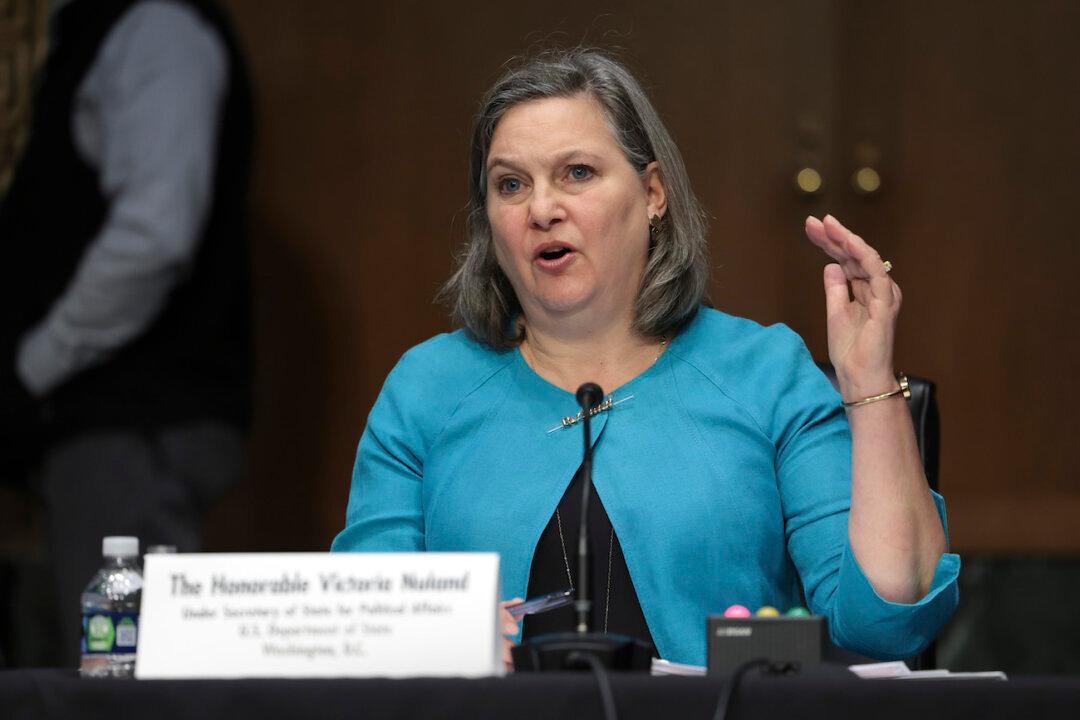The United States is working to prevent Russia from taking control of Ukraine’s “biological research facilities,” according to a U.S. official.
At a Senate Foreign Relations Committee hearing on March 8, Undersecretary of State for Political Affairs Victoria Nuland was asked by Sen. Marco Rubio (R-Fla.) whether Ukraine has chemical or biological weapons.




